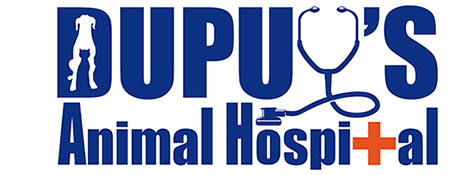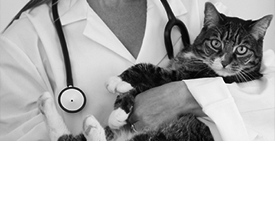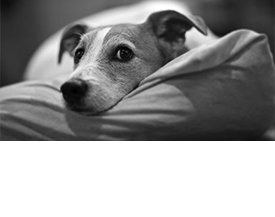Library
-
Senior dogs should be assessed by a veterinarian at least every six months. A nutritional assessment can help the veterinarian identify changing energy or nutrient requirements, which may warrant a diet change. Senior diets vary widely in nutrient profiles as there are no established standards. It remains vital that older dogs stay well hydrated. Recommendations for senior dog diets need to be based on regular evaluations and discussion between veterinarian and owner.
-
Interactive feeders that require a pet to think and work for their food call upon pets’ natural instincts to hunt or forage. Besides being fun, these food puzzles may help both physical and behavioral problems in cats and dogs. When used correctly, interactive feeders may benefit pets that eat too quickly, become bored when alone, or suffer from separation anxiety.
-
This handout discusses the need for ensuring your pregnant dog is receiving adequate nutrition to make sure both she and her puppies thrive during this time of increased demands on her body. Feeding and diet suggestions are provided.
-
Special attention must be given to a dog's nutrition during her pregnancy to ensure the birth of healthy puppies. It is important to maintain a good body condition throughout pregnancy; this is achieved with regular monitoring. This handout outlines a pregnant dog’s unique nutritional needs and how to meet them, ensuring a healthy mother and pups.
-
Each dog is an individual and one standard feeding plan may not work for every pet, but following a set schedule can be beneficial for a number of reasons. For most dogs, two meals per day is best. The use of food toys or interactive feeders can add interest to your dog's mealtime. Routines help your dog adjust to changes that may occur in your home and allow you to monitor their health.
-
With all cancer management strategies, providing optimal nutrition for your dog is essential. The metabolic effects of cancer will persist after treatment but with your veterinarian’s guidance, you can adjust your dog’s nutrient profile and potentially avoid some of these negative side effects. Carbohydrates promote cancer cell growth, while cancer cells have a difficult time using fat as an energy source, so foods that are relatively high in fat and low in carbohydrate may benefit dogs with cancer. The effects of surgery, chemotherapy, and radiation therapy will be considered when your veterinarian advises a nutrient profile, formulation, quantity, and delivery method for your dog.
-
Selecting your dog’s food is a choice you make to support their health and well-being for each of their life stages. Complete and balanced commercial dog foods are designed to have specific nutrient profiles, and different diet types are available for healthy dogs or those with a medical condition. Your veterinarian is always ready to help you make the best nutritional choices for your dog.
-
Once your dog reaches adulthood, his nutrient profile changes from when he was a puppy. Your veterinarian can help you determine what proportion of each nutrient is needed based on your dog’s lifestyle and current body condition. Avoid free-feeding and work on a meal schedule. Following these steps can help your dog lead a healthier life and avoid becoming overweight or obese.
-
Food allergies can be problematic for many dogs, especially after years on the same diet. Clinical signs may manifest as gastrointestinal or skin problems. Some animal proteins are the most common causes and strict avoidance is the best way to treat affected dogs. An eight to twelve-week elimination diet trial on a special veterinary diet is the only definitive method to diagnose a food allergy and, in some cases, the veterinary diet may need to be continued long-term.
-
Adverse food reactions in dogs are either caused by food allergy – an immune response to something ingested or food intolerance – a non-immunological response to something ingested. Signs of food intolerance are usually only digestive in nature. Food intolerance will generally occur on the initial exposure to the food or food additive in contrast to food allergy which requires repeated exposures to develop. Different causes of food intolerance include food poisoning, or inappropriate ingestion of an irritant, reaction to food additives, histamine reactions, lactose intolerance and dietary indiscretion such as eating fat or bones. A dietary history is important in diagnosing these conditions.


